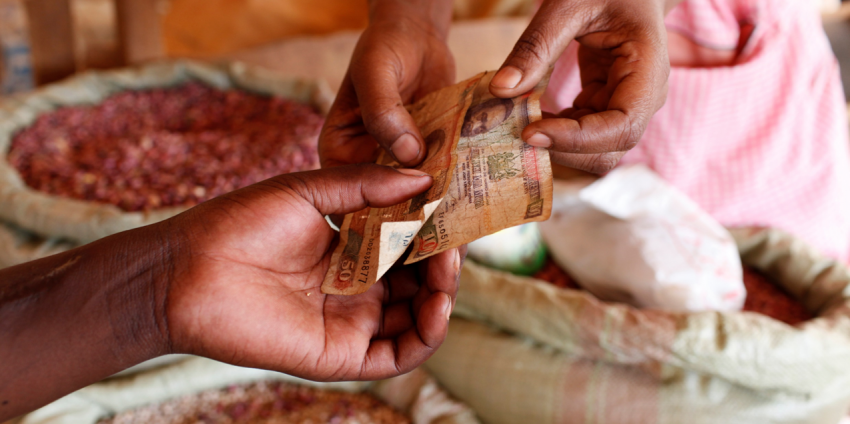
Soukeyna Ndiaye Bâ has been a Director of the Foundation’s Board since its creation. Engaged in the promotion of women entrepreneurs for more than 20 years, she is also Executive Director of INAFI (International Network of Alternative Financial Institutions) a global network of organisations that support microfinance programmes. Abdul Hai Khan is a Foundation’s Director and the Managing Director of Grameen Trust. He is also Board member of diferent microfinance and social business organisations in Australia, Bangladesh, China, France, India, Kosovo, Italy, USA and Yemen.
1/ Directors of the Foundation, you are also both international experts and microfinance practitioners. Can you share with us your analysis of the crisis and more particularly on the territories that you know well?
Soukeyna Ndiaye Bâ: In Africa, the current toll is close to 100,000 deaths and more than 3.7 million people infected, but these figures do not reflect the reality in the continent because there is no mass screening due to a lack of resources. Because of restrictions and border closures to contain the pandemic, the economic crisis has not spared the African continent. In this context, small-scale entrepreneurs, smallholder farmers and informal sector workers are directly afected. On the front line: women, both in rural and urban areas, who are very active in the informal sector. In Senegal, for example, about 94% of women entrepreneurs operate in the informal sector. In rural areas, in addition to the gravity of the economic situation, the already alarming health precariousness and dificulty in accessing healthcare may worsen.
Abdul Hai Khan: Current death toll in Asia is approximately 417,000, while the number of infected cases stands at more than 26 million. Schools in East Asia and the Pacific have been completely closed for more than 25 million children for almost an entire year. Covid-19 has slowed growth in East Asia and the Pacific (EAP) as it has significantly reduced economic activity, including tourism and trade. Growth in the AEP region, excluding China, is forecast to slow to 1.3% in 2020 from 4.7% in 2019. Millions of households have been afected by the loss of jobs and income (including remittances), while they still have to cover basic expenses or service debt. Consequently, the percentage of poor people has increased.
2/ How do microfinance and social business mitigate the efects of the economic crisis?
AHK: By improving access to essential services, microfinance institutions and social businesses strengthen the resilience of low-income populations, including small-scale entrepreneurs from the formal and informal sectors and smallholder farmers. They are therefore essential to protect the most vulnerable populations, severely afected by the efects of the economic and health crisis during the Covid-19 pandemic. To cope with this pandemic, many microfinance institutions have innovated and increased their support to their clients. For example, they have restructured loans to better support the most afected clients and accelerated their digital transformation, by introducing or improving cashless transactions through mobile banking channels and by creating virtual branches.
3/ What is the outlook for the years to come?
AHK: The magnitude of the damage that Covid-19 pandemic has brought in the world is huge. However, it ofers us a unique opportunity to improve, or even redefine, our economic structures by relaying on social and environmental consciousness. We should not call it a ‘recovery’ programme but a ‘reconstruction’ programme. In this comprehensive reconstruction plan, social entrepreneurship can play an essential role, as it can be a lever to transform unemployed people into entrepreneurs. Financial inclusion can help economic recovery go hand in hand with social development.
SB: The world is threatened with recession and food and social crisis. Building the «after Covid» world must therefore be multi-sectoral and focused on innovation. We must learn from the problems encountered during this crisis: better assess and anticipate risks, strengthen our socio-economic models and rethink our public policies to better protect the most vulnerable populations. Women entrepreneurs will have a key role to play in boosting the economy. Supporting female entrepreneurship will be a lever for women empowerment and the development of rural and urban economies. Digital will be a major tool to encourage entrepreneurship, modernise, develop and innovate.